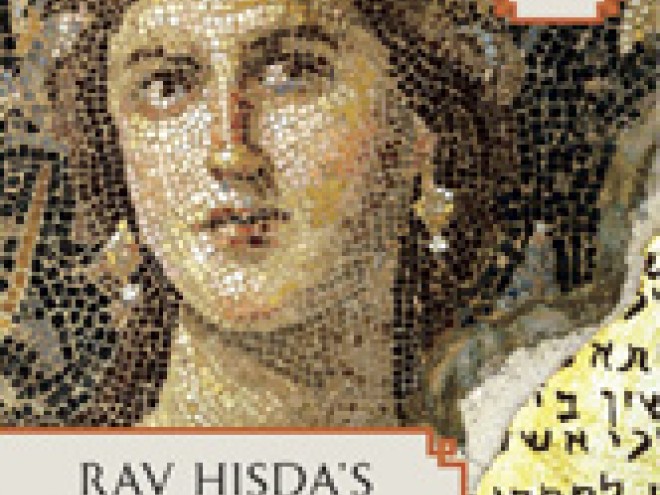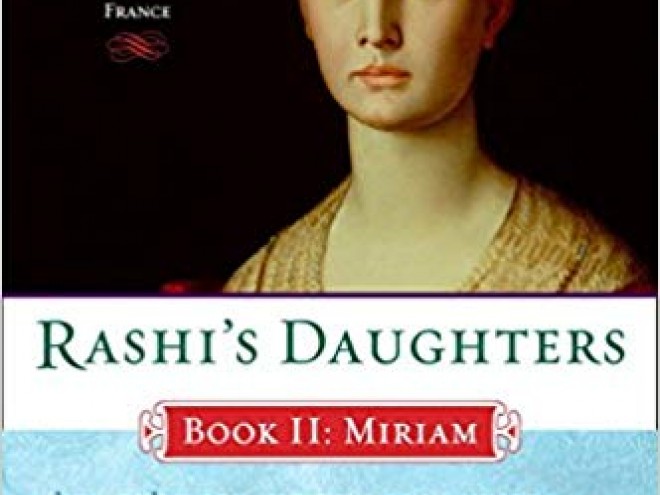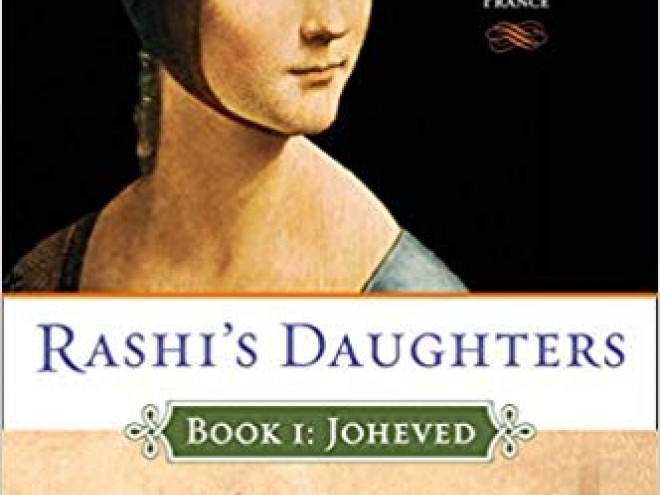Another excellent historical novel from Maggie Anton, Rav Hisda’s Daughter explores the life of a young Jewish woman on the cusp of adulthood in third-century Babylonia. After tragedy strikes, Hisdadukh challenges the limitations of society, in part by becoming an expert in the ancient magic practiced by respected women in her community. She also travels to Israel; this is one of the strongest portions of the book. Anton’s fascinating descriptions of Jewish life there provide superb insight into the burgeoning differences among Jewish communities across the ancient world.
Just as insightful are the many discussions of Jewish law and tradition from the third century. These discussions touch on a range of topics, from the storage of vegetables, to betrothal and marriage, to the proper celebration of Passover. Anton draws from the full universe of available sources — including but not limited to Bible, Mishnah, and Talmud — to present complicated discussions in accessible form. As always, Anton’s book is a good introduction to traditional Jewish learning, and perhaps, like Anton, readers will be motivated to discover the sources for themselves.
Also noteworthy is the integration of secular historical events into the narrative. The ‘Time Line’ is particularly useful in this regard, as the recurring military struggles between Rome and Persia affect Hisdadukh and her family in ways that the reader will want to understand fully.
Those readers who enjoyed the Rashi’s Daughters series will find this first book of Anton’s next series pleasurable, educational – and familiar. Much is the same despite the different time and place, but Anton’s extensive research and high-quality writing bring context to life in a way that is ultimately satisfying. Definitely worth the read – and be sure to check out the extra resources available online. Cast of characters, glossary, map, preface, time line.

Fiction
Rav Hisda’s Daughter: A Novel of Love, the Talmud, and Sorcery
By
– April 20, 2012
Rachel Sara Rosenthal is an environmental attorney in Washington, DC. Originally from Greensboro, North Carolina, she graduated from Duke University in 2003 and Columbia University School of Law in 2006.
Discussion Questions
Courtesy of Maggie Anton
- How does the prologue set the tone for the novel? Why do you think the author reveals that Hisdadukh will marry both Rami and Abba right upfront? How does that alter the way you read the rest of the novel?
- Why is Hisdadukh embarrassed by her response to her father when he asks her whether she would rather marry Abba or or Rami? How does her family react? Considering what comes to pass, do you believe there was any element of prophecy in her response?
- How does the historical setting frame the events of the novel? What techniques does the author employ to bring the sights and sounds of third-century Babylon to life?
- Hisdadukh and her family believe that Rav Hisda’s piety protects them from the evil eye. Does the novel ever give you any reason to doubt this? How does Rav Hisda’s piety affect how outsiders perceive his family?
- How is the kind of sorcery that Hisdadukh, Rahel, Kimchit and Em practice linked to their Judaism? Dada initially wonders why Rahel’s work doesn’t make her an evil kashafa — how does she come to reconcile this?
- We see in Rav Hisda’s classes that often times there can be two right answers to the same question. How does the author juxtapose the discussions of the Mishna and the Baraita against Hisdadukh’s relationships with both Rami and Abba?
- Did you expect Rav Hisda to be angry when he discovered that Dada’s grandfather was sleeping in her kiton with her? Why or why not? What did you learn about Babylonia culture from the novel that surprised you?
- Do Rami and Abba despise each other only because they’re rivals for Hisdadukh’s affection, or is there more to it than that? What did you make of Zahra and Pazi’s advice to Dada, that she should encourage the two to get along with one another?
- What did you perceive to be the difference between the rabbinic families and the am-ha’aretz? Does Dada’s opinion of the am-ha’aretz change over time? How so?
- Why do you think Pushbi treats Achti so poorly? How does her behavior change after Tabita curses her? What about Achti? What did you think about the way Achti treated Hisdadukh after Rami’s death?
- How does Hisdadukh cope with the many trials she faces? What role does her faith play? How does it change throughout the novel?
- What do you think about the laws that govern what happens to a woman’s children in the event of her husband’s death? How do they align with other aspects of Babylonian culture at this time? Do you think they make sense within the context of the times?
- Why does Dada decide to travel with her father to Israel? What makes her decide to stay there? Would you have done the same in her position?
- Think about how upset Dada is when she learns that her father has entered into initial negotiations to betroth her to Abba. How does Dada eventually come to love Abba? Can you trace the evolution of her feelings?
- Describe Dada’s friendship with Yochani. What do the two women offer one another? Why do you think their friendship blossomed to quickly?
- Why does Dada agree to model for Salaman? What ultimately prevents her from marrying him?
- Do you blame Yehudit’s death on Sepphoris’s kashafa? Dada says that she blames herself — why? What do you think of her reasoning? What did you make of Abba’s confrontation with the kashafa?
- The ending of the novel is hopeful but not definitive. What do you imagine is next for Hisdadukh? Can you imagine Abba and Dada’s marriage? How do you think it will differ from her marriage to Rami, considering what you know about each of the characters?

Jewish literature inspires, enriches, and educates the community.
Help support the Jewish Book Council.



